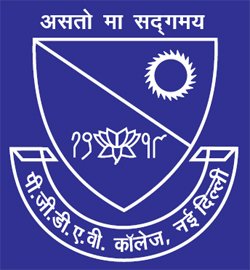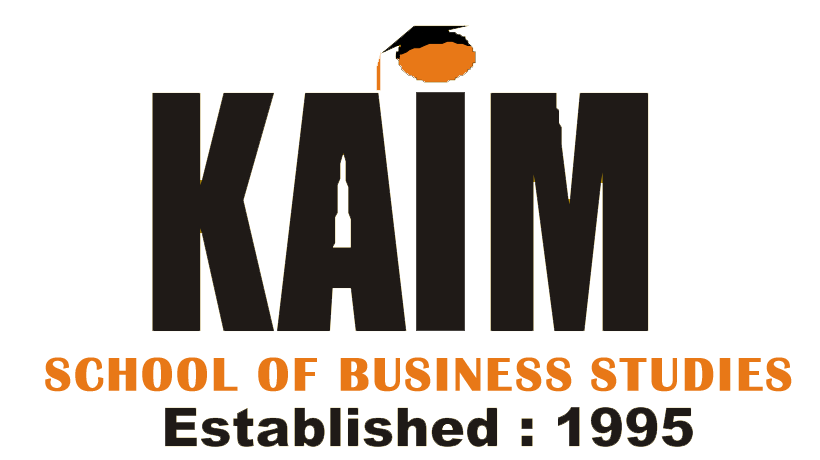Bachelor of Commerce (Honours) [B.Com (Hons.)]
3 Years
B.Com (Hons.) Overview:
The B.Com (Hons.) is a three-year undergraduate program that emphasizes a deeper understanding of the theory and practice of accounting, financial management, business economics, and taxation. The curriculum is designed to develop specialized skills required for high-level positions in the fields of accounting, finance, and business analysis.
Program Structure:
The B.Com (Hons.) course is divided into six semesters (two semesters per year). The program involves a combination of core subjects, electives, and ability enhancement courses.
Year 1 (Semester 1 & 2):
In the first year, students are introduced to the fundamental principles of accounting, finance, and business economics, as well as a general understanding of commercial laws.
-
Core Subjects:
-
Financial Accounting: Introduction to accounting principles, financial statements, and bookkeeping.
-
Business Economics: Micro and macroeconomic concepts and their application in business decisions.
-
Business Mathematics: Quantitative techniques and mathematical models used in business.
-
Business Law: Introduction to the legal framework affecting businesses, including Contract Law, Company Law, and Intellectual Property Law.
-
-
Skill Enhancement Courses (SEC): These courses focus on practical skills, such as computer applications, communication skills, and business writing.
Year 2 (Semester 3 & 4):
In the second year, the course becomes more specialized, and students delve deeper into subjects like corporate accounting, cost accounting, and management.
-
Core Subjects:
-
Corporate Accounting: Advanced accounting principles, such as mergers, acquisitions, and financial reporting.
-
Cost Accounting: The study of cost control techniques, decision-making processes, and cost analysis in a business environment.
-
Income Tax Law and Practice: A detailed study of taxation laws, tax planning, and preparation of income tax returns.
-
Financial Management: The study of corporate finance, budgeting, investment analysis, and financial planning.
-
-
Elective Subjects: Students may select elective subjects based on their area of interest, such as Marketing, Human Resource Management, or Entrepreneurship.
Year 3 (Semester 5 & 6):
The final year focuses on specialized topics related to advanced business and financial concepts. Students are also encouraged to undertake a project or dissertation based on their area of study.
-
Core Subjects:
-
Auditing: Principles and techniques of auditing in business.
-
Management Accounting: Techniques for managerial decision-making, performance evaluation, and financial analysis.
-
Indirect Tax Law: Understanding indirect taxes, such as GST (Goods and Services Tax), and their application in business.
-
Corporate Governance and Business Ethics: Focus on ethical issues in business and the regulation of corporate behavior.
-
-
Project/Dissertation: A project or dissertation allows students to apply their theoretical knowledge to a real-world business or financial issue under faculty supervision.
Core and Elective Subjects:
The B.Com (Hons.) program offers a wide range of core and elective subjects. Some of the core subjects include:
-
Financial Accounting
-
Cost Accounting
-
Corporate Accounting
-
Financial Management
-
Income Tax
-
Business Law
-
Auditing
-
Management Accounting
Elective subjects may include:
-
Human Resource Management
-
Marketing Management
-
Entrepreneurship
-
International Business
-
Banking and Insurance
-
E-Commerce
-
Investment Analysis
Assessment and Evaluation:
The B.Com (Hons.) program is evaluated through both internal assessments and end-semester examinations:
-
Internal Assessments: These include assignments, projects, presentations, and quizzes.
-
End-Semester Examinations: The final exams assess students’ understanding of the core and elective subjects covered throughout the semester.
Skills Developed:
By completing the B.Com (Hons.) program, students develop the following skills:
-
Analytical and Critical Thinking: Ability to analyze financial statements, evaluate business performance, and make informed decisions.
-
Financial Management: Expertise in managing corporate finance, budgeting, and investment planning.
-
Accounting Skills: Proficiency in advanced accounting techniques used in the corporate world.
-
Business Law Knowledge: Understanding of legal frameworks and regulations governing business operations.
-
Communication Skills: Development of strong written and oral communication skills, essential for reporting financial information and interacting with stakeholders.
-
Ethical Decision Making: Awareness of business ethics and corporate governance practices.
Career Opportunities After B.Com (Hons.):
Graduates of the B.Com (Hons.) program can pursue a wide range of career options, including:
-
Further Studies:
-
M.Com. (Master of Commerce) for further specialization in commerce and accounting.
-
M.B.A. (Master of Business Administration) in areas like Finance, Marketing, Human Resources, or Operations.
-
Professional courses like Chartered Accountancy (CA), Cost and Management Accountancy (CMA), or Company Secretary (CS).
-
-
Corporate Sector:
-
Accountant or Financial Analyst in corporations, financial institutions, or multinational companies.
-
Audit Assistant or Internal Auditor in firms or companies.
-
Tax Consultant or Financial Planner for individuals or companies.
-
-
Government Jobs:
-
Appear for competitive exams like UPSC, SSC, and Banking Exams for roles in public sector banks, financial regulatory bodies, and government organizations.
-
Indian Revenue Services (IRS) for taxation-related services.
-
-
Entrepreneurship:
-
Launch your own business or consultancy in areas such as taxation, accounting, finance, or audit.
-
-
Banking and Insurance:
-
Banking Sector: Roles such as banking officer, credit analyst, loan officer.
-
Insurance: Insurance advisor, claims analyst, insurance policy consultant.
-
-
Consulting:
-
Work as a business consultant, advising firms on financial strategies, cost reduction, and business optimization.
-
Eligibility Criteria:
The eligibility criteria for B.Com (Hons.) include:
-
Completion of Class 12 from a recognized board with a minimum percentage in the Commerce stream (typically, a minimum of 50%-60% depending on the cut-off).
-
Specific requirements may vary each year, so it's always a good idea to check the University of Delhi’s admission guidelines.
Admission Process:
-
Application: Students must apply through the University of Delhi’s online admission portal.
-
Cut-Offs: Admission is based on merit, and the cut-off marks are typically published after the Class 12 results.
-
Documents: Students must submit documents such as Class 12 marksheet, ID proof, and category certificates (if applicable).






 OMAWATI686b96fcc7a5c.jpg)